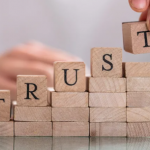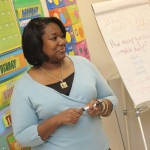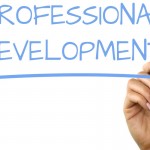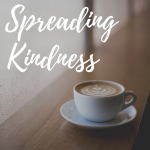As I restart my engines for a new semester, I get so excited about continuing this journey with my scholars. I find myself sitting at my desk contemplating about what is working, but I also reflect on what I may need to do differently. If I am being honest with myself, sometimes my thoughts become very overwhelming. For teachers, reflecting over the previous semester can be quite daunting, especially if we struggled this first semester to build and maintain positive relationships with our scholars. We all want to feel cared for and valued and young people are no different. As teachers, we sometimes forget about one of our most powerful tools: positive expectations. As classroom teachers, we exercise a great deal of power over our scholars simply due to the fact that they spend more time with us each day than they do with their own families. When we spend that much time with students, it is imperative that we understand the impact of our words and actions; our words and actions carry an enormous amount of power. Our words and actions matter! If students feel that we value and care for them as individuals, they are more willing to comply with our wishes, but more importantly, we are helping to shape their future.
I remember when I was getting my degree in school reform, my professor would put up these statistics with research showing how teacher expectations directly correlated with student achievement. The research illustrated how teacher expectations have a dramatic impact on student academic performance. On my campus, we often discuss how student behavioral performance is also dependent, to a large degree, on the expectations of significant adults in our students’ lives. Numerous studies indicate that the expectations teachers have for students tend to become self-fulfilling prophecies. With this in mind, it becomes so critical that we monitor our interactions with our scholars. The goal then becomes trying to communicate appropriately high behavioral and academic expectations to all students, not just to those we deem as high achievers.
There is a great article in Arizona K-12 Homeroom, entitled “Restorative Practice: What It Is and Why You Need It.” In the article, the author highlights the building blocks for nurturing student-teacher relationships and “strengthening community in order to prevent and respond to campus wrongdoings.” Positive relationships truly have the capacity and the power to release untapped potential in our scholars. The article stated that these “restorative practices work with all grade levels. All ages benefit from restorative practices. First, students want to have relationships, and that can happen at any age…Restorative practices impact the whole school. They will help the culture of the school as it becomes a more welcoming place…Students previously labeled ‘bad’ or ‘high flyers’ become a huge part of the school.”
One thing is clear: as humans, we are definitely “hard-wired” with the desire and need to connect. We are social creatures who thrive on healthy relationships. And yet, the importance of positive relationships in our schools is often overlooked. I am excited for my campus next year. We will be adopting and implementing PBIS (Positive Behavioral Interventions and Supports). PBIS is a way for schools to encourage positive, productive student behavior. As a PBIS school, we will be teaching our scholars about behavior, just as we teach about other subjects like reading or math. The focus of PBIS is prevention, not punishment!
PBIS is an alternative to traditional school discipline. The Homeroom article explained how traditional discipline is just not working for our schools anymore. The blogger noted how “traditional discipline policies are failing teachers. There are no relationships involved, and students don’t have any connection to the school or teacher. There needs to be conversations held so students understand their impact. Without understanding impact, the same behaviors will happen again….Students are labeled as bad students — and then they build their identity as ‘bad’ students.” This is the self-fulfilling prophecy playing out every day in our schools.
Despite the proven connection between positive relationships and student achievement, some totally discount building relationships in our higher grade levels. I remember when I first got into teaching, I would hear my colleagues say that it was just a bunch of “fluff” more appropriate for elementary schools. When I started teaching high school and then the middle grades, I learned very quickly the importance of building quality relationships. For our older kids who are trying to gain some independence and figure out which way is up, relationships with classmates and teachers are crucial to their success. It’s definitely not “fluff.”
While some may not think they have the time to spend building relationships, may I suggest that we cannot afford to dismiss it. Relationships and instruction should not be an either-or proposition, but are rather an incredible combination! The power of investing in our young people and establishing lifelong positive relationships is an extraordinary opportunity and calling.
What are your thoughts on this issue? I would love to hear your strategies for how you are unleashing the power of positive relationships in your classroom ![]()










Comments 1
My district brought in Dr. Dominque Smith at the start of the year and let me tell you, he was a game changer and got our teachers really thinking about how we all approach building positive relationships with students. Small changes were immediately evident, with new teachers often more quickly embracing a shift in thinking about discipline. One of the things I saw that was most successful was when all parties got on board and took PBIS and RJ practices and made them specific to their student populations through whole-school initiatives, committees, and processes.